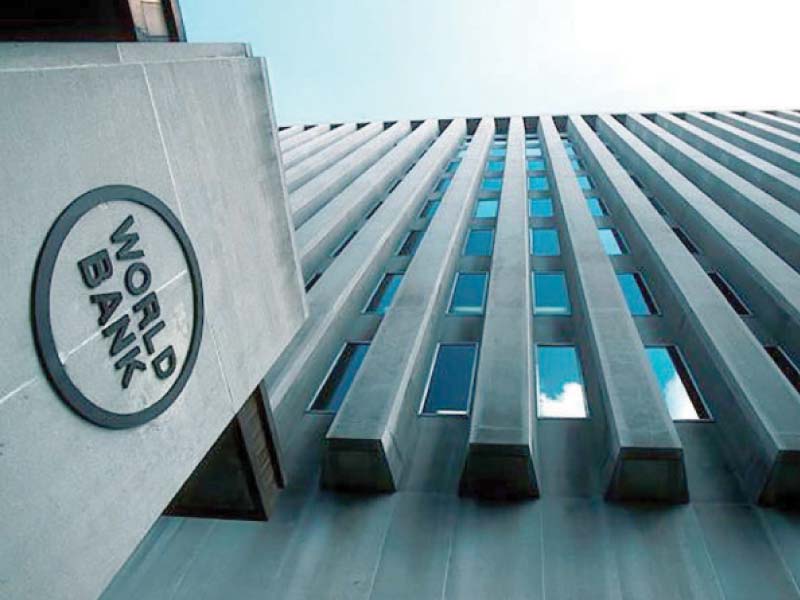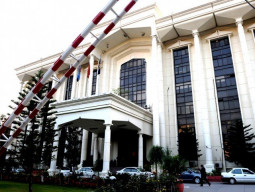
The World Bank has approved a new loan of $400 million for Khyber-Pakhtunkhwa (K-P) province for addressing staff and budget issues in education and health sectors - the tasks that can be performed without contracting more debt.
The World Bank’s Board of Executive Directors approved $400 million in financing to support Pakistan in accelerating investments in education and health services in the K-P province, said the World Bank on Friday.
It added that the K-P Spending Effectively for Enhanced Development (SPEED) programme would help the provincial government strengthen its management of public resources and fiscal planning to sustain human capital investments in education and healthcare services.
By implementing critical reforms in budget allocation and expenditures, the provincial programme will contribute to increased quality of schools and health centres and remove obstacles to reach ‘the last mile’ in the delivery of education and health services in K-P, according to the World Bank.
However, the functions that will be performed in return for getting $400 million foreign loan apparently do not require foreign currency, as these measures need better administrative and governance skills, and a shift in policies.
The Pakistan Tehreek-e-Insaf (PTI) government has already taken $33 billion in loans and 75% of these loans were meant for budget support and balance of payments, like the SPEED programme. A report by the Institute of Policy Reforms breaks myths that such foreign loans were good for Pakistan’s economic development.
The report went on to say that the international financial institutions remain unhelpful to Pakistan.
Pakistan’s public debt-toGDP ratio that was 72.5% before the PTI came to power has already surged to 94% of GDP, according to the International Monetary Fund (IMF).
Yet the reckless borrowing continues in the name of reforms. About 20 years ago, the multilateral lenders made a shift to programme lending, which further fuelled government’s spending beyond means, according to the IPR.
The IPR said that the myth that borrowing created growth was misplaced, as in Pakistan’s case, borrowing created the need for more borrowing with an external account crisis waiting to happen.
The “economy would stay in its present state of low growth, low exports, and close to default” because of high external borrowing that eats a majority of government revenues and leaves very little for economic development and productive spending.
In the last fiscal year, Pakistan paid Rs2.3 trillion in principal and interest to foreign creditors, which was almost twice the amount spent on development by the federal and provincial governments.
World Bank Country Director for Pakistan Najy Benhassine said that the SPEED programme supported a comprehensive and robust approach to public financial management in K-P that tackled key bottlenecks in planning, budgeting, procurement and supply chain management so that adequate resources were available to deliver education and health services on a sustainable basis.
The loan is given to ensure implementation of quality assurance measures to evaluate the performance of education and healthcare services in the province, which focus on facility-level accountability and increased access, as well as disparities in the uptake of services among males and females, said the World Bank.
The World Bank said that the $400 million loan will improve predictability of resources to provide access to medicine in primary healthcare facilities, including maternal and neonatal clinics for women across the province, and increase availability of adequate teaching staff in at least 45% of primary, middle, and high schools in the province, and particularly for girls’ schools.
However, all these issues do not require any foreign funding.
The loan documents stated that the K-P province allocates less than other provinces in per student education expenditure (Rs28,000) and more than any other province in teacher compensation-nearly Rs20,000 more than Punjab.
The result is clear: despite an average increase of around 8% per year in primary and secondary education expenditures during the period FY12 and FY19, gross enrolment rates in primary school declined by an average of 1.5% per year, according to the World Bank papers.
Benhassine on Friday also met with Minister for Finance and Revenue Shaukat Tarin and discussed the upcoming loan programme with him.
Tarin reiterated the firm resolve of the government in achieving macro-economic stability and sustained economic growth by following a consultative process, according to a Ministry of Finance statement. He apprised the country director that the first Economic Advisory Council (EAC) meeting had decided to work towards reinvigorating the productive sectors of the economy.
The finance minister stated that the continued support of the World Bank, as a major development partner, was critical to attaining fiscal consolidation, improved service delivery and good governance in Pakistan.
1719660634-1/BeFunky-collage-nicole-(1)1719660634-1-405x300.webp)

1732276540-0/kim-(10)1732276540-0-165x106.webp)

1732274008-0/Ariana-Grande-and-Kristin-Chenoweth-(1)1732274008-0-165x106.webp)















COMMENTS (1)
Comments are moderated and generally will be posted if they are on-topic and not abusive.
For more information, please see our Comments FAQ